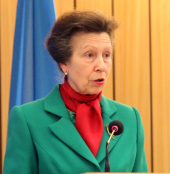
Yulia Tymoshenko case is one of topical issues in European policy today. Her apprehension and a subsequent conflict in the Ukrainian community became the subject of close attention from Europeans. Mostly all leaders of EU countries, and key officials of the European Parliament and European Commission have expressed their stance in this regard. At the end of March, the interim committee (chaired by Inna Bohoslovska) of the Verkhovna Rada of
On 10 April 2012, Inna Bohoslovska held a press conference on a topic “Why Tymoshenko is still in prison” attended by European journalists, experts and public members, at the premises of NCI European Parliament in
а) concealed from the public and government the facts of the conflict of interests and dependence on Russia, particularly, the debt of her privately-owned companies to the Ministry of Defence of the Russian Federation in the amount of USD 405 million, and a bribery case against her;
b) held secret talks with the Prime Minister of Russia and agreed to unfair contracts, thus, violating signed international treaties;
c) issued Directives on signing the contracts being aware of the Government of Ukraine having withdrawn from approving them, however the Cabinet of Ministers only – as a collegial body – is entitled to issue such directives;
d) brought pressure on the company head subordinate to her and made him sign the contracts threatening to fire.
Pursuant to a comparative analysis of the laws of
Inna Bohoslovska demonstrated to journalists an extract from a resolution issued by the Chief Military Prosecutor’s Office of Russia on closing a criminal case against Yulia Tymoshenko. It read that Tymoshenko was involved in the case of bribing of Russian officials since January 1996 to September 1997. Inna Bohoslovska stressed that the Interim Investigation Committee had evidence from officials at the Central Bank of
According to a resolution of the Chief Military Prosecutor’s Office of Russia, the criminal case against Yulia Tymoshenko was closed in 2005 because of expiration of the period of limitation for a criminal persecution.
Journalists could also review a full experts’ report of the Interim Investigation Commission to be published in near future.







































